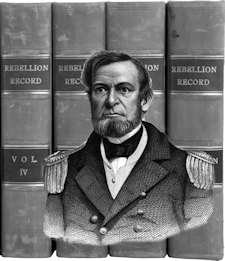January 6.—The second execution by hanging, in the Army of the Potomac, took place today. The convict was private Michael Lanahan, Company A, Second Regiment, U. S. Infantry, and the offence, killing Sergeant Brenner, by shooting him. The General-in-Chief, in the order approving the finding of the court-martial, says the proof is clear that he did this in the satisfaction of the grudge he bore toward the deceased; not only for the blow he had given him in the guard-house, a few minutes before, but for old scores, which he mentioned in his statement to the court It is very reprehensible for a commissioned or noncommissioned officer to strike a soldier, except when it is absolutely necessary to repress disorder. It is never allowable as a punishment for an offence. But for a soldier, because of being struck, to shoot his immediate superior, is at war with every principle of military subordination. It was in evidence that it was not customary for sentinels at Georgetown to have their guns loaded The prisoner must have loaded his musket for the purpose of carrying out his vindictive design against the sergeant The homicide in this case seems to lack none of the features which distinguish murder from simple manslaughter. For these reasons the sentence was approved, and the Provost Marshal was charged with the execution of the order.
The gallows was erected in the northern suburbs, and the convict was hung in the presence of detachments from five regiments of the regular infantry.
—The schooner William Northrop, hailing from Nassau, N. P., and from Havana, December 1, was brought into New-York by Prize-master Rhoades and five men from the gunboat Fernandina. She had a cargo of eighteen bags of coffee, and a quantity of quinine and other medicines. She was taken December 25th, off Cape Fear, by the gunboat Fernandina, while attempting to run the blockade at Wilmington, N. C, and ordered to New York. She was formerly a Charleston pilot-boat.—Baltimore American, January 7.
—The Richmond Dispatch, of this date, says: The fortification of Richmond, Va., on the Manchester side of James River, is progressing at a very satisfactory rate, under the capable superintendence of Mr. William A. Mason, who has been appointed one of Captain Hagan’s deputies in carrying out the designs of the government. So far as we are capable of judging, all of the defensive works on both sides of the river have been or are being put with a single eye to the amount of resistance which they may be capable of making to the inroads of the enemy, should he ever, at any time hereafter, make his appearance in this section of country.
As the reader is probably aware, companies are now being formed in this city to man the fortifications. When the men are announced as ready, no doubt all the guns which the present force is capable of handling with effect will be immediately placed in position, and the men duly instructed in their use. This subject of manning the batteries, from the abortive attempts made by the “Home Artillery,” has been treated more lightly than it deserves.
It is an encouraging sign of the times that the people are now willing to consider the matter in the serious light in which it should be regarded. We hope the enemy may never come this way; we don’t believe that he ever will, but should he ever do so, the value of the batteries to our citizens would be beyond computation.
—This night Colonel Howell, of the Eighty-fifth Pennsylvania regiment, arrested Captain Gwin at a point twenty miles below Washington. He was an officer of the rebel army, and had, not long before, crossed from Virginia into Maryland, where his family resided. There were found in his possession numerous letters directed to parties both in the North and South, and also bundles of clothing, which doubtless, he intended to transfer across the Potomac to Virginia.—N. Y. Commercial, January 8.
— Major – General George B. Crittenden, commanding the Confederate forces in Southeastern Kentucky, issued an order, dated at Mill Spring, in which he strongly appeals to all Kentuckians who have not yet taken up arms, to join immediately the rebel ranks, and fight for the cause, not only of the Confederate government, but of their own State. He affirms that the object of the war, on the part of the North, is “the extinction of slavery and the subjugation of the South;” and urges the men of Kentucky, by all obligations of interest, honor, and duty, not to remain inactive, but to join hands and hearts with these who are striving to repel the invaders.—(Doc. 6.)
—John Letcher, Governor of Virginia, sent a message to the Virginia House of Delegates, in relation to resolutions received by him from Joseph E. Brown, Governor of Georgia. After rehearsing Mr. Lincoln’s course and designs, he urges the “Mother of States” to reaffirm what the “Empire State of the South” has declared, that “the separation of the Confederate States from the United States is, and ought to be, final and irrevocable,” and that, therefore, all efforts to subjugate them will be resisted by the sister States with the utmost vigor, energy, and unanimity.—(Doc. 7.)



